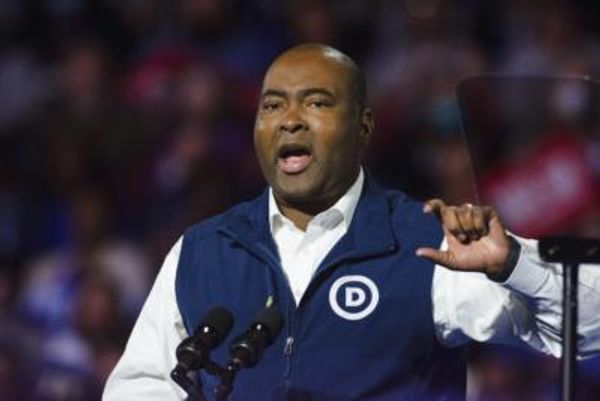WASHINGTON _ The federal government would be firmly in charge of horse racing in the United States under legislation that now has the support of a majority of House of Representatives members as lawmakers and racing advocates warned Congress urgent action is needed to boost the sport's sagging image.
The sport is currently governed by a patchwork of 38 states' laws.
Under the House of Representatives measure, racehorses would be drug tested for banned substances by a new federal nonprofit, which in turn is controlled by the United States Anti-Doping Agency, which drug tests professional athletes and Olympians. All drugs would also be disallowed in the 24 hours leading up to a race.
At a Tuesday congressional subcommittee hearing, everyone seemed to agree that the status quo in the sport _ a $15.6 billion industry beset with decreasing prize money and fan interest, performance enhancing drug abuse and thousands of dead horses _ was unacceptable.
"Horse racing as a sport has been in serious decline for years and something must be done," said Chris McCarron, a former jockey and member of the National Museum of Racing and Hall of Fame, who spoke in favor of the bill. McCarron rode to six victories in Triple Crown races throughout his career.
The bill, proponents argue, would restore the integrity of the sport and would prevent trainers from masking horse's injuries with drugs _ something that frequently leads to injuries during races and the death of horses.
But there were critics of the bill. Dennis Drazin, operator of Monmouth Park race track in New Jersey, made the same point and said the issue should be handled internally, and the industry should move toward establishing its own standards with its own commissioner the way other major American sports do.
If the federal government must be involved, he said, they should go even farther to set standards in the industry, he said.
"This past year has been tough for our industry. There has been 35-plus breakdowns in Santa Ana racetrack, your backyard," Drazin said in response to a question from Rep. Tony Cardenas, a California Democrat. "We in the industry know that horses break down, hopefully less and less, but they break down."
"With all due respect, I hope when I die people don't say that I 'broke down,' " Cardenas replied.
Also opposing the bill was Edward Martin, the president and chief executive officer of the Association of Racing Commissioners International. He said the legislation inserts the federal government into something that is already effectively handled by the states.
A similar measure has been introduced in each Congress since 2015 by Reps. Andy Barr of Kentucky, a Republican, and Paul Tonko of New York, a Democrat. It currently has 229 House members signed-on as cosponsors _ 183 Democrats and 46 Republicans _ enough to pass it. No vote has been scheduled.
"I think the House passing the legislation in a bipartisan fashion gives the bill a lot more momentum in the Senate," Barr said. "I think the Senate really hasn't dealt with this issue, maybe doesn't think that they have to deal with this issue until the House passes it."
Senate Majority Leader Mitch McConnell, a Kentucky Republican, chooses which bills come up for debate in the upper chamber. Asked about the bill, Robert Steurer, his communications director, wrote in an email: "if Leader McConnell comments on the legislation, I will let you know."
Since horses are euthanized if they can't stand up, a bad fall at the track or in training could be as lethal as a bullet. More than 6,000 racehorses were fatally injured from 2009 to 2018, according to a study done by the Jockey Club, a trade association that has existed for more than 125 years. That's an average of more than 1.5 dead per day.
There has been a surge of horse deaths at the Santa Anita race track in California. Last weekend three horses died in as many days. This has prompted a new wellspring of support for the proposed bill.
Many horses are fed prohibited drugs so they can be stronger, lighter and faster, while legal drugs are abused by many trainers to induce weight loss or to dull pain so the horses can run faster. This, in turn, puts the horses and jockeys in danger when the horses push themselves beyond their physical limits, leading to disaster.
"I can also tell you this: while riding, there is no more of a helpless feeling, ... than when a horse breaks down," McCarron said. "It is a tragedy. If a jockey is lucky enough to survive the fall, the sorrow felt for the fate of the horse is the next weight to bear."
"If I had my way, it would just be hay, oats and water," he said.
As a result, many have lost faith in the sport, Barr said. This has created a vicious cycle in which fan interest has been driven down, leading to less money spent on bets, leading to less in prize money, which means there's less of an incentive for people to invest in the sport, and so on. If this goes on, Barr said, horse racing won't be able to attract the next generation of fans and investors.
"Clearly when you see what's happened at Santa Anita and you see fans dropping off, and you see protests of our sport, we can't ignore that. We need to get ahead of that. We need to reform the sport," he said.







